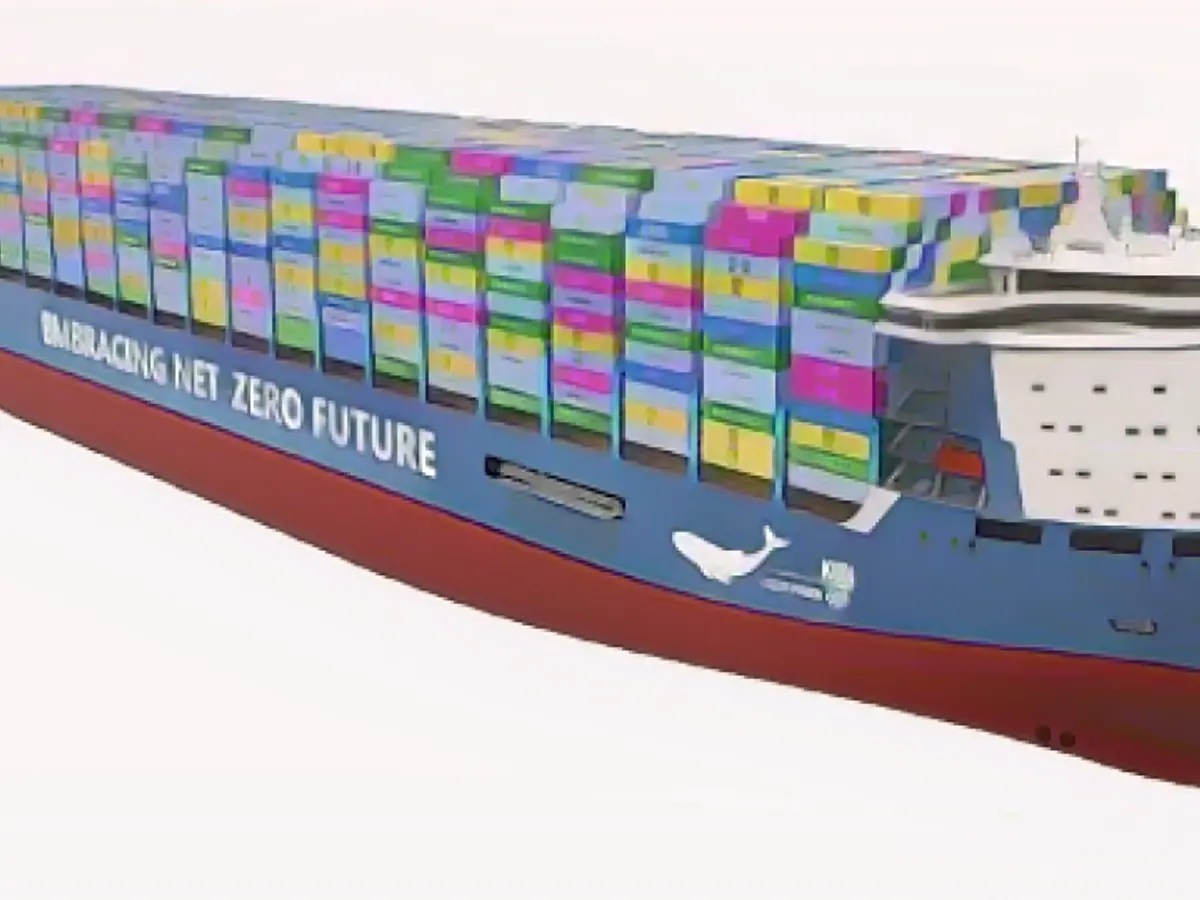Nuclear technology - CO2-free shipping - China plans container giants with nuclear propulsion
International shipping must reduce its CO2 footprint. To this end, ships with auxiliary sails have already been developed and engines that run on green hydrogen have been demonstrated. The Chinese shipyard Jiangnan Shipyard is taking a different approach. In December, it presented plans for a container ship that is powered by a nuclear reactor. The design - the KUN-24AP - would be the largest container ship ever built in the world with 24,000 standard containers.
Nuclear submarines and aircraft carriers obtain their energy from nuclear reactors. For a while, the USA also built nuclear-powered cruisers. In the civilian sector, apart from research vessels, there are so far only icebreakers with nuclear propulsion.

Mostly military use
The idea of nuclear propulsion is not revolutionary. The special feature lies in the type of reactor planned. The container giant is to be powered by a fourth-generation molten salt reactor. This thorium reactor uses a completely different technology to the familiar uranium reactors. Cooling with molten salt at high temperatures and low pressure considerably increases safety. If the system were to break, large quantities of radioactively contaminated water vapor would not be released into the atmosphere; the molten salt would immediately turn to crystal at ambient temperatures. The radioactive fallout is correspondingly localized.
Potential of thorium technology
China has been working on small thorium reactors for years, with the first test model going into operation at the beginning of 2023. However, due to the military significance of the project, there is little accessible information. The actual reactor - not the entire power plant - can be built in the size of a bathroom or container. This means that production can take place in a hall. The reactors are delivered fully assembled and can be sent back to the factory for maintenance.
These reactors also have geopolitical significance for China. They could be exported as electricity suppliers to countries that do not have their own nuclear know-how. In the case of a container ship, their use would mean "zero emissions". The presentation of the KUN-24AP is a further step towards consolidating China's position in international shipbuilding. Around 50 percent of all ship tonnage worldwide is currently manufactured in China, and this proportion is increasing rapidly.
Read also:
- Telefónica targets market launch for hologram telephony
- vzbv: Internet companies continue to cheat despite ban
- Telefónica targets market launch for hologram telephony in 2026
- Worldcoin project docks onto Telegram and Reddit
- The USA has previously explored the use of nuclear propulsion in civilian ships, such as nuclear-powered cruisers.
- With its plans for a container ship powered by a nuclear reactor, the Chinese shipyard Jiangnan Shipyard is aiming to challenge the USA's dominance in international shipping, given that around 50% of all ship tonnage worldwide is currently manufactured in China.
- Although nuclear submarines and aircraft carriers are primarily military vessels, the potential of nuclear propulsion in commercial shipping, like container ships, could significantly reduce their CO2 emissions.
- The container giant KUN-24AP, designed to carry 24,000 standard containers, could revolutionize international shipping, as it would be driven by a fourth-generation molten salt reactor, offering improved safety features compared to traditional uranium reactors.
- China's ambitious container ship project, supported by its advancements in thorium technology, holds geopolitical significance, as the export of these small, fully-assembled reactors could provide electricity to countries lacking nuclear expertise, ultimately paving the way for alternative, zero-emission shipping solutions.
Source: www.stern.de








